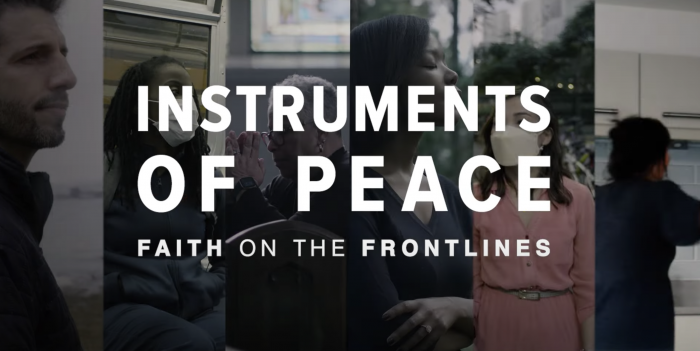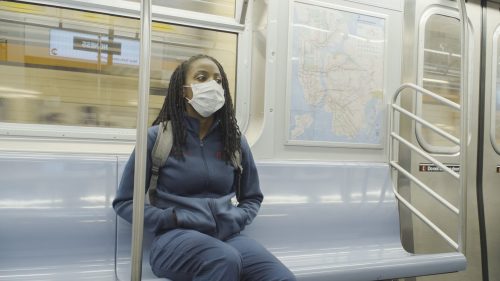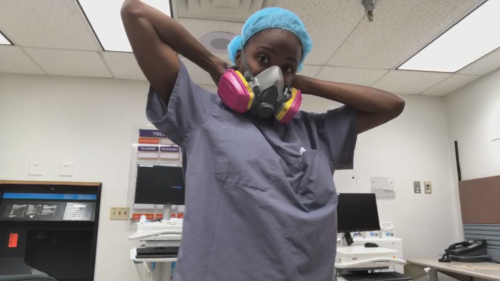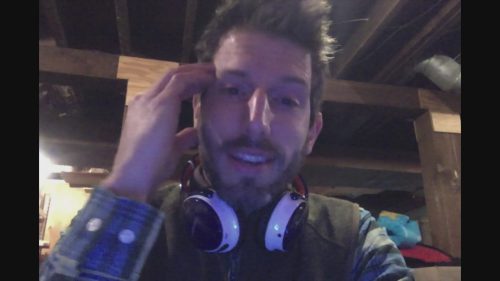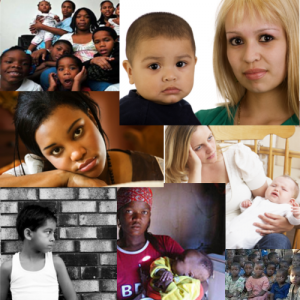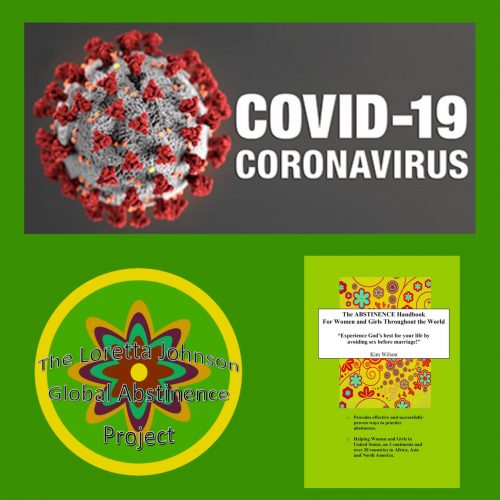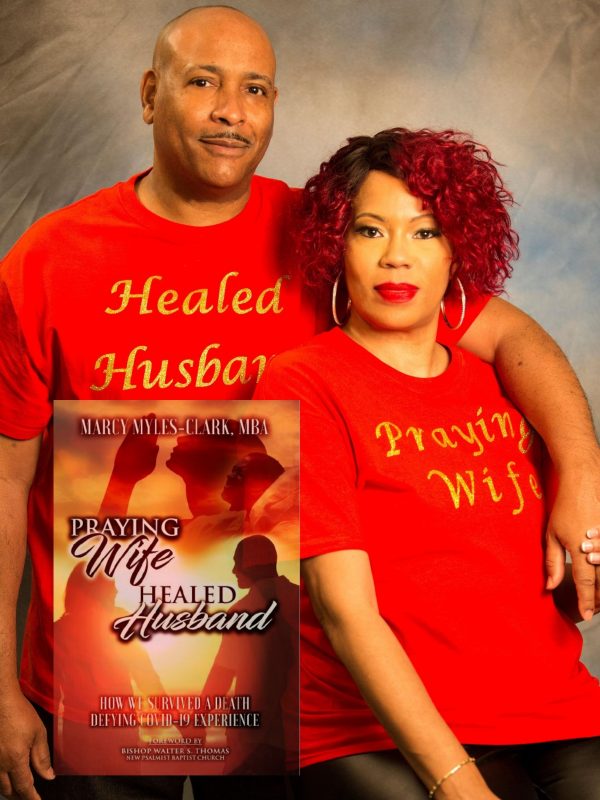
Hello World,
One year ago, on March 11, 2020, the World Health Organization declared that the outbreak of the novel coronavirus (COVID-19) was a global pandemic! If God has spared your life to mark this anniversary, you need to take a minute right now and give Him some praise on this Sunday morning! To that end, I have a “modern-day biblical story” of victory over COVID-19 to share with you!
One year after the couple’s battle with COVID-19, Marcy Myles-Clark has released her debut book, Praying Wife, Healed Husband, a riveting account of Marcy’s spiritual fight on behalf of her husband, Theirrien “Tee” Clark. Using her journal entries, medical records and a series of communications with her husband’s medical staff, family and friends, Marcy recounts how she remarkably and relentlessly stirred up a bounty of prayer warriors to breathe hope into a hopeless situation—and bring her husband home. On December 18, 2020, “Tee” Clark, one of Howard County’s first COVID-19 cases, received an honorary Doctor’s White Coat from John Hopkins Hospital for his miraculous recovery after a 46-day hospitalization. The White Coat Ceremony is a rite of passage for medical students and was created by the Arnold P. Gold Foundation in 1993. During the ceremony, a white coat is placed on each student’s shoulders and often the Hippocratic Oath is recited, signifying their entrance into the medical profession.
1. What were your initial thoughts when you heard about the pandemic in March 2020?
Marcy: In early March of last year, it was not a huge deal. It was definitely on my radar. It was something we knew to be concerned about, but we had no idea of the magnitude and that things were going to happen so quickly. And that we wouldn’t have the ability to prepare ourselves for it. We were the fourth and fifth in our county to be diagnosed with COVID-19 (just to give a glimpse at how early on it was). We were totally blindsided. At that point, there was talk about social distancing, but we weren’t even talking about masks yet.
Tee: Given the talking points we received from the government, it wasn’t really clear how deadly this disease was. There weren’t a bunch of reported deaths at the time, so no one knew the severity. Even though we were a little suspicious hearing about it, we did everything on our end to protect ourselves. But we still ended up getting infected.
2. Take me back to your life at that point, Tee, you’re a manager at a law firm, and Marcy you’re a pharmaceutical sales rep. When did you begin to experience COVID-19 symptoms?
Marcy: Our experience started on March 13, which was our last working day on a Friday. On Saturday, we became fatigued. It wasn’t impossible that we would be fatigued because we do a lot of things. We rip and run. We commute. We thought we would just relax all weekend. Then my husband became symptomatic. He developed a fever. Then he started getting chills. Classic flu symptoms. Then he developed a cough. His temperature was intermittent between 99 and 100. I told him by Monday, if his temperature reached 101, we were going to go to urgent care–and hit 101 like clockwork. So, we went to urgent care on Monday morning. My symptoms were mild. I felt like I had a sinus infection because I had nasal discomfort which I experience often so it was no big deal to me. I figured I was just tired, but he was the dead giveaway.
No one was doing COVID testing but the hospital. Because of his symptoms, urgent care referred us to the hospital where we got COVID tests. The next day, on March 17, we were diagnosed with COVID.
What was your initial reaction when you were both diagnosed with COVID-19?
Tee: I was very upset because I was trying to figure out how and where I caught this virus because we had been so careful. But because we were out in the public a lot, we were exposed to a lot of different factors. That Friday evening, I had spoken with my boss and we were discussing closing the firm down. Given what they were saying about this virus, I asked him if he thought any of us were going to get sick. His response was that inevitably someone was going to get sick. We have a law firm of 1,000 people, somebody is definitely going to get it. Little did I know it would be me.
Marcy: For me, in a weird kind of way, it was really a relief because I’m the type of person who thinks: “let’s find out what the devil is and let’s deal with it.” By then, I had kind of figured he had COVID because he had every one of the classic symptoms the CDC and WHO were warning us of, and everything else like the flu and RSV had been ruled out.
Marcy, What was it like to be living a normal life and then have to leave your husband at the hospital and not be with him?
It was crazy. We had gotten in touch with his pulmonologist because he has asthma and allergies. I called his doctor that Friday before. He was actually doing better but his cough was pretty bad. The doctor planned for nurses to meet us at the curb. I dropped him off at the curb and because I was also COVID positive, they wouldn’t let me in. They took his vitals, and I thought he was going to be okay. He just had this cough, and I thought they would just give him some medicine–maybe give him a treatment or something, and then send him on his way.
So, I sat in the car and waited for him to come back out. About 45 minutes later, I called them, and no one answered. I called his phone and he didn’t answer. Five minutes later, he called me back. He put the doctor on the line. The doctor told me that things were worse than they had anticipated, and they needed my permission to do an emergency intubation. As you can imagine, my stomach, my heart and everything just dropped. And that was the beginning of this chapter. I wouldn’t see him alive and well for another 46 days. And he was on a ventilator for 28 of those days.
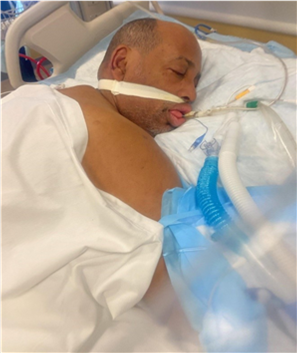
Tee, what were you thinking at this time or were you too sick to realize what was happening?
I was pretty doped up on cough medicine with codeine, so I was a little out of it. I slept all of the way to the hospital so when we got there, Marcy woke me up and the nurse rolled me in. Initially, the doctors set it up for me to get a cat scan but because COVID was so new, there were no protocols in place. They didn’t know how to prep the machine for a COVID patient. And the doctors said, we need to do something. We can’t wait. They decided to do a chest x-ray. Based off of that x-ray, they determined that I was in lung failure. When the doctor came back into my room, I said, ‘Okay, doc, give me my prescription so I can go home and go to sleep.’ He said, ‘No sir, Mr. Clark, your lungs are failing. We need to intubate you right away.’ I was like, ‘What?!’ That woke me up! I said, ‘I need to call my wife.’ That’s when I called her back and put the doctor on the phone. By then, they had already started an IV drip. Once I handed the doctor the phone, I was out. That was the last time I spoke to her for over 30 days.
3. So I read in your book Marcy that you assembled a prayer team after that.
A lot of things transpired in that time period after hearing that news and not knowing if he was going to live or die. I’ve always been a person of faith and prayer and this was the time to put my money where my mouth was. Interestingly enough, when I was sitting in the parking lot, I tried to figure out what my next move was going to be. I had every imaginable and unimaginable emotion from panic to grief. But my spiritual side just kicked in and I knew I needed to go into prayer. I sent out a few family texts. I made a couple of phone calls. In doing so, I got a call from our niece who is a minister and very strong in her faith. She prayed a mighty prayer for me, and I believe that is what got me home that night.
I sent out a bunch of texts and emails to my friends and family and just activated the prayer chain from there. I solicited prayer from every part of the country and then some. I organized a prayer call, scheduled and impromptu calls, keeping everyone in the loop about his status. As we prayed for him, he would have these different episodes. His oxygen levels would drop, and he would have issues with an irregular heartbeat, and a number of different tragic events. And as we prayed, he would respond. I knew this because I was in touch with the doctors on a regular basis, several times a day. That is the premise of the book. I documented my conversations with the doctors and kept record of his vitals and physical condition. Whatever the episode was, after prayer, he rebounded. We prayed without ceasing.
A lot of people are private with their struggles, what made you so public about what was going with your husband?
Me and Tee have a really great support system. We love a lot of people–and a lot of people love us. And I know firsthand the power of prayer–of collective prayer. I believe in prayer in numbers. I didn’t know anything else to do. My husband was fighting for his life, and the only weapon I had was prayer. We are private people but when it comes to something like this, it’s not the time to be private. I will say this, when we first got the diagnosis, we did say we were going to keep it to ourselves because we were among the first to be diagnosed with COVID in our area. We thought it would be over in 14 days. But that went out the window when he had to fight for his life.
And God was speaking to me the whole time. He told me early on that we were going to be okay, but he also told me that I needed to assemble a group of people and pray him back to health. He said to pray like his life counted on it. I felt like if my husband’s living was based on my prayers, then he was going to live.
4. In the book, you were so meticulous with all of the notes you took and your emails, both of which you kept. What gave you the presence of mind at that time to keep track of all that information?
I wasn’t thinking of trying to write a book. I was just trying to stay sane and organized. I was talking to several people during that time frame. I talked to his physician, his hospital providers, etc. five or so times a day. I started writing little sticky notes all over the place and then I realized I need to take this up a few notches. I started writing on loose leaf paper and then I created a binder. That way, I could go back to my previous notes and see where he was earlier in the day and kind of see where the progression was.
I was also journaling for my own personal relaxation. I was journaling my own personal conversations with God. I was also keeping in contact with my prayer group via text. So those were the three things when he began to recuperate that I realized I had. I had the unveiling of a modern-day biblical story. Also, there was a lot of interest in his story when he began to recuperate. I was encouraged to write a book. And it wasn’t that big of a stretch because I realized that I had all of the content.
5. Your husband started getting better around Easter, which is a miraculous turn of events with the timing.
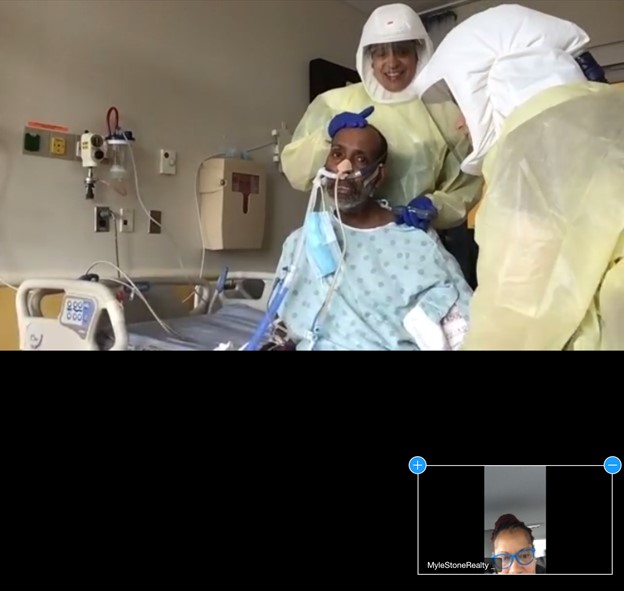
On Easter Sunday, I got the call that he was doing very well, and they were taking steps to try extubate him. I almost fell out of my seat because up until then, things had been so grim.
I read, Tee, that you were trying to get completely well and out of the hospital by your fifth anniversary on May.
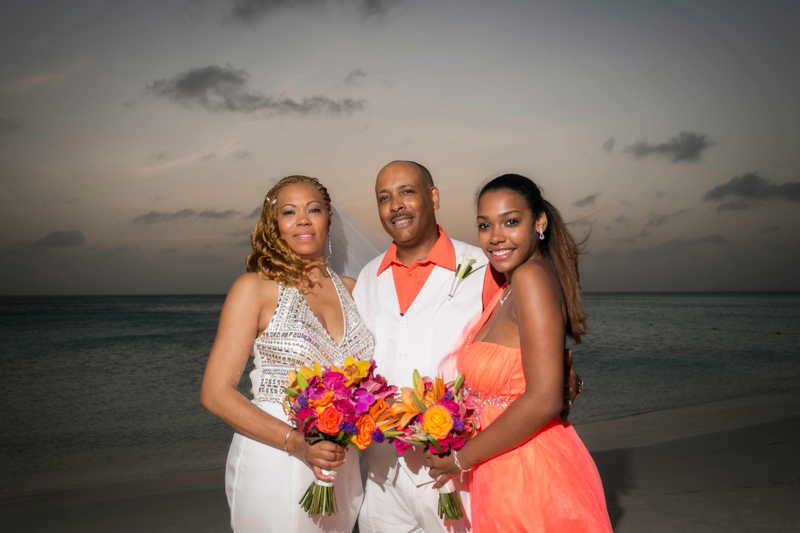
When I woke up, I was literally out of it. I didn’t know where I was. All of these people were around me and I answered some of their questions. My initial thought was, I need to get up and go to the bathroom. I tried to move and realized I was paralyzed. I was really freaking out at that moment. I couldn’t move anything–not even my head. In fact, the nurse was cradling my head like I was a baby.
They told me I was going to get some intense physical therapy. I had physical therapy, occupational therapy, and speech language pathology once I left the ICU. They never told me a release date, but I told them I was going to be out of there by May 5. I wanted to be home with my wife on our anniversary. The doctor said to me, ‘That’s a pretty aggressive date, Mr. Clark. You have to meet a couple of thresholds before we consider that.’” I asked what the thresholds were. I was told you have to be able to stand and walk at least 20 feet. When I heard that, I couldn’t sleep. I thought about that all night long. It felt so far away because I had to first get to the point where I caould use a walker.
One of the physical therapists who came in one morning was like a drill sergeant. She said, ‘You only walked 10 feet. You have to get to 20 feet.” But I was determined so I said, ‘No problem.’ I ended up walking 60 feet that day, and 20 of them were without the walker. When I got back on the bed, they were all happy and clapping. The doctor came in and said, ‘You know you’re making great progress. We’re going to meet and discuss your release date.’ I said, ‘Tomorrow! It’s the 5th.’ I ended up being released on May 6, one day after our anniversary.
Although it was day late, what did the two of you do to celebrate your 5th anniversary?
Marcy: Well, we were still on lockdown then, so we didn’t do anything special. We were just happy to be in each other’s presence.
Tee: I still was very weak. I couldn’t walk for too long. I had a lot of problems with balance. I still had fatigue issues. Basically, Marcy was taking care of a baby. In fact, she was helping me to shower one night, and she hurt her back. And it really bothered me. I realized that we needed some additional assistance, so we ended up getting an in-home aide to assist me with those type of things until I got strong enough to do them for myself.
6. What are your lingering symptoms?
Till this day, I still have problems with my right arm. The deltoid muscle was damaged from being on the ventilator so long because I was laying on that. And it killed the muscle. Also, my body has been conditioned to wake up every two hours so I’m still having major sleep issues. When I was in the ICU, they would come in every two hours to take my vitals. Some days, I wake up and I’m extremely tired. I have COVID brain fog sometimes. They call me a long hauler.
7. Why do you think God allowed this to happen to the two of you. What have you learned from this experience?
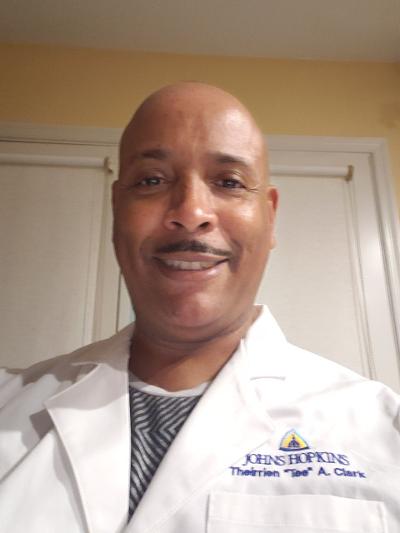
I think initially we had a mission to get the word out about COVID. It frustrated us because we would go out and see people not abiding by the CDC guidelines. I actually had a lady stop me one time and ask me, ‘Why are you wearing a mask?’ She said she didn’t like wearing masks because she can’t breathe, and they fogged up her glasses. I said, ‘Oh, that’s interesting. Let me tell you this: If you have tube stuck down your throat, you’re not going to be able to breathe either. I’m speaking from my experience as a COVID survivor.’ She looked at me and walked away.
Now our mission going forward is to tell people that they need to get the vaccine. In our community, people are a little apprehensive about getting the vaccine because of our history. But I tell people all of the time that this is a new day and a new virus.
For more information and to buy copies of Praying Wife, Healed Husband, go to prayingwifehelps.com.
If you like this kind of content, please click on this link to subscribe to my blog.
Any thoughts?
